
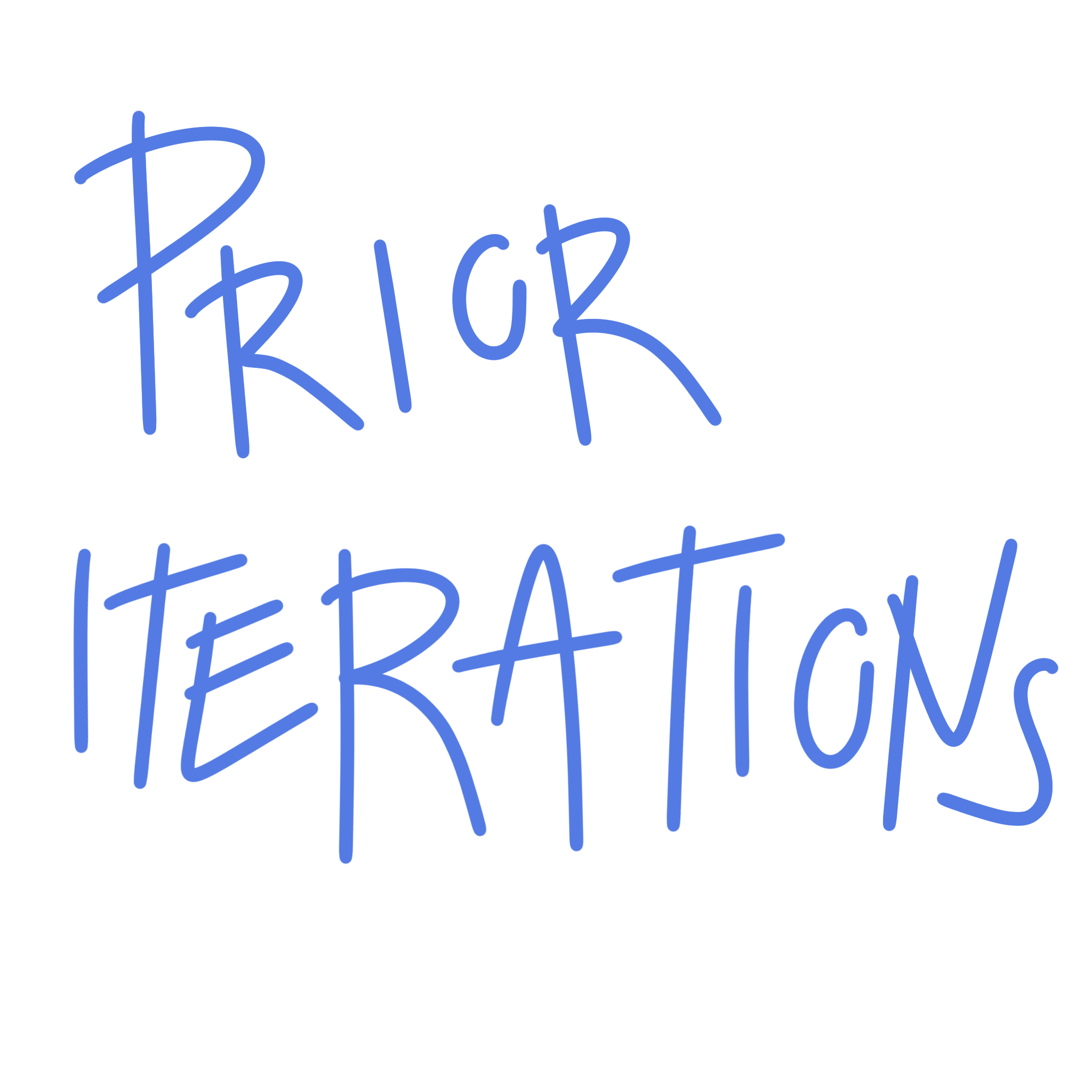

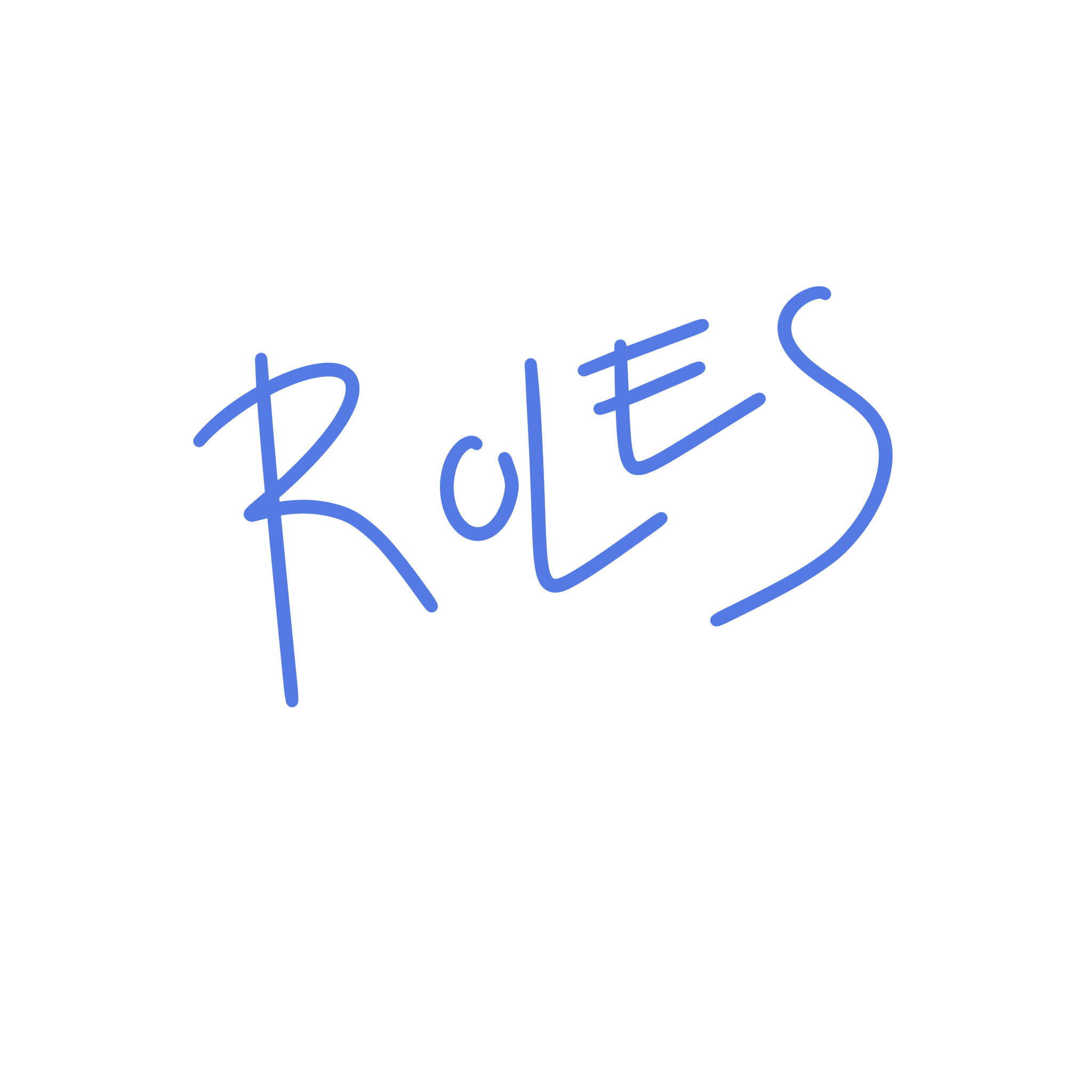
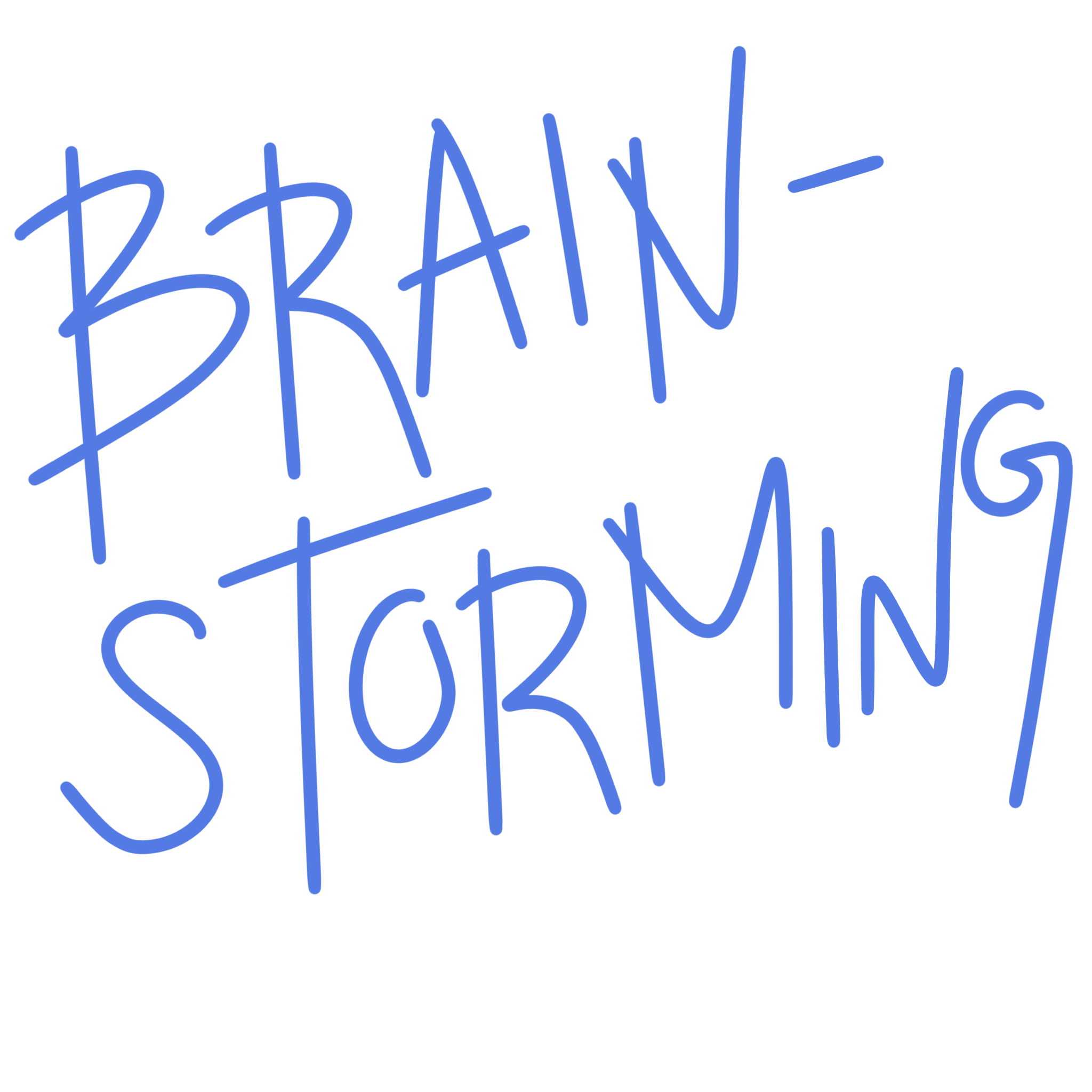
After struggling for a while we decided to settle on identities and their fluidity.
Our goal became to show that everyone has multiple personalities, fluid identities and layered selves. We not only present ourselves in multiple ways in different situations, but we are also influenced in multiple ways by our environment and the society we live in. Between all those presentations of personalities, we fluctuate, change and grow.
One Japanese proverb states that "[...] we have three faces. The first face is the face we show to the world, diplomatic and perfect. The second face is the one we show to our family and friends, semi-real but not the truest. The third face is the one we hide from everyone; we never show this to anyone and that is the truest reflection of who we are."
The idea of multiple faces is interesting, although we think there’s more to those faces. Showing a true self, when all other layers are stripped down, is not a realistic one, because we are built upon societal constructs that form us. Once there’s only one layer left, it doesn’t mean all those aspects around us don’t exist, but built through layers and in a world were class, race and gender still determine your place in society, our faces will always be and stay affected.
By embracing all faces, we can embrace our fluid identities. Let’s loose the idea of fixed identities and celebrate the complexity of our layered selves.
PRESENTATION
For the presentation, we decided to incorporate this Japanese proverb and create a workshop on mask-making. Acknowledging that there is not enough time to work out masks in detail, we believe it's still nice to make a start with it.
We don’t aim or expect everyone to define their identities - to pin them down - because that’s unrealistic. Rather, we aim to encourage everyone to rethink their identities in a form of visualization.
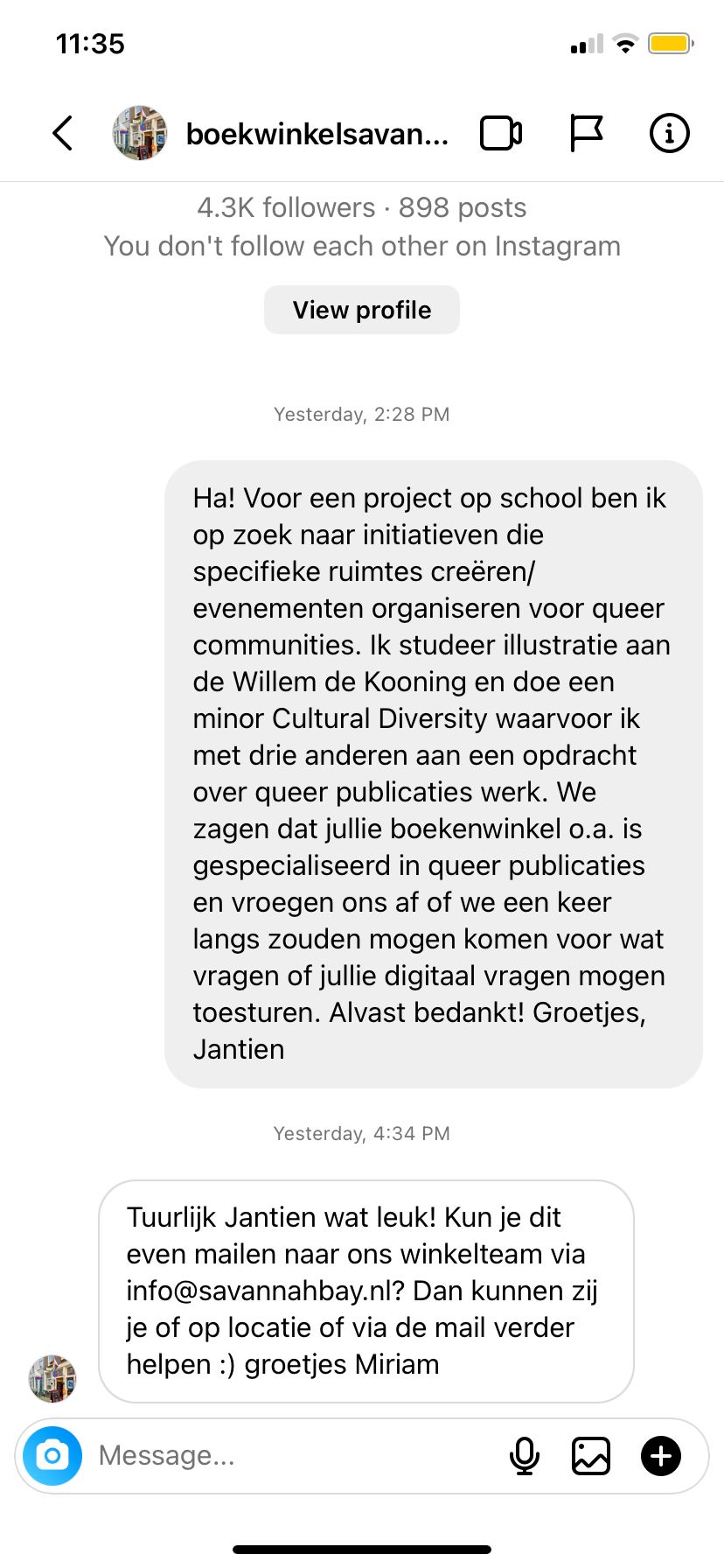
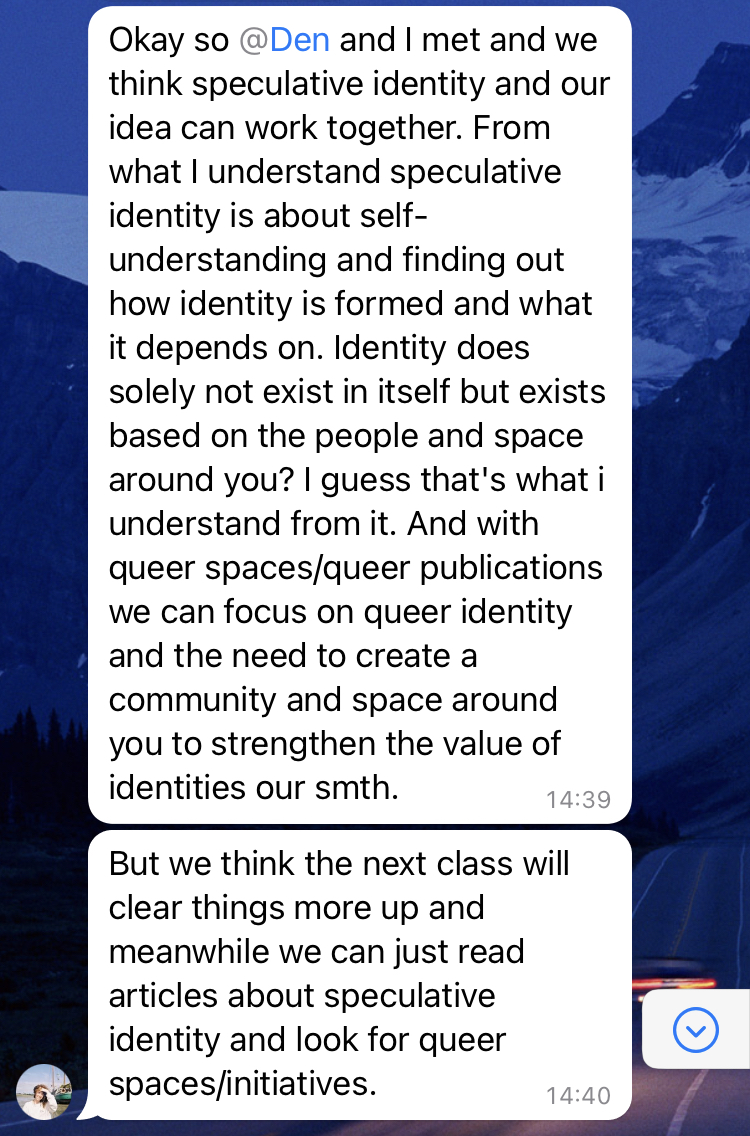
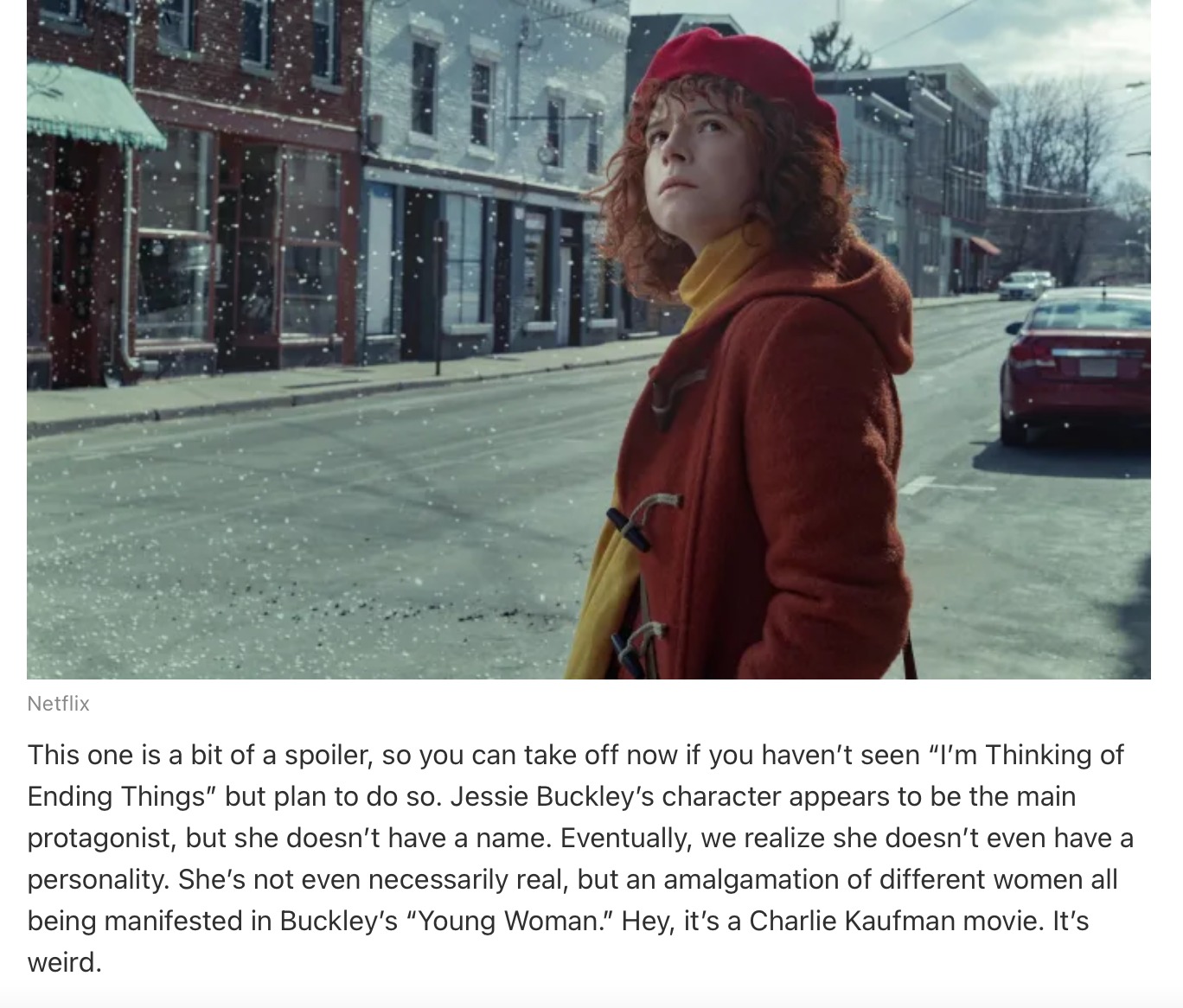
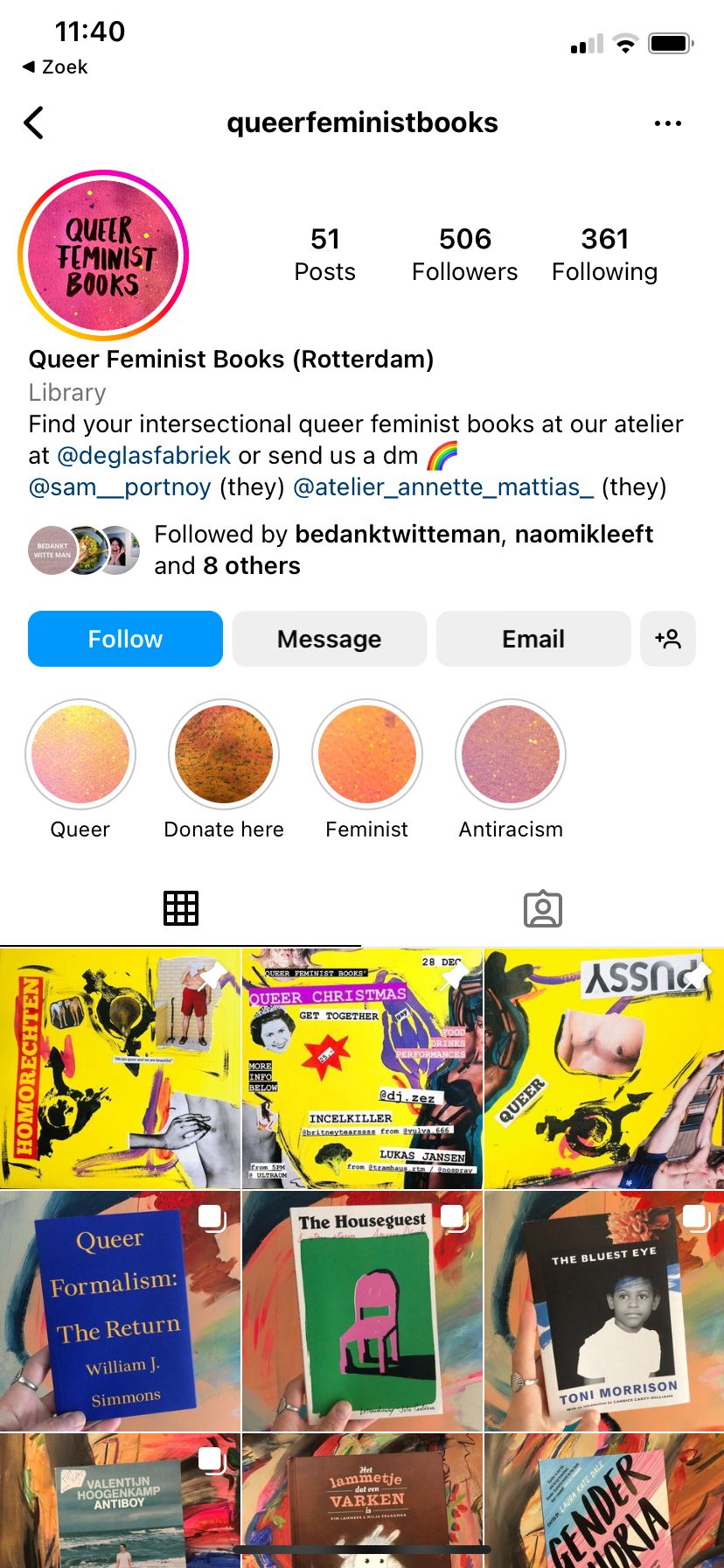
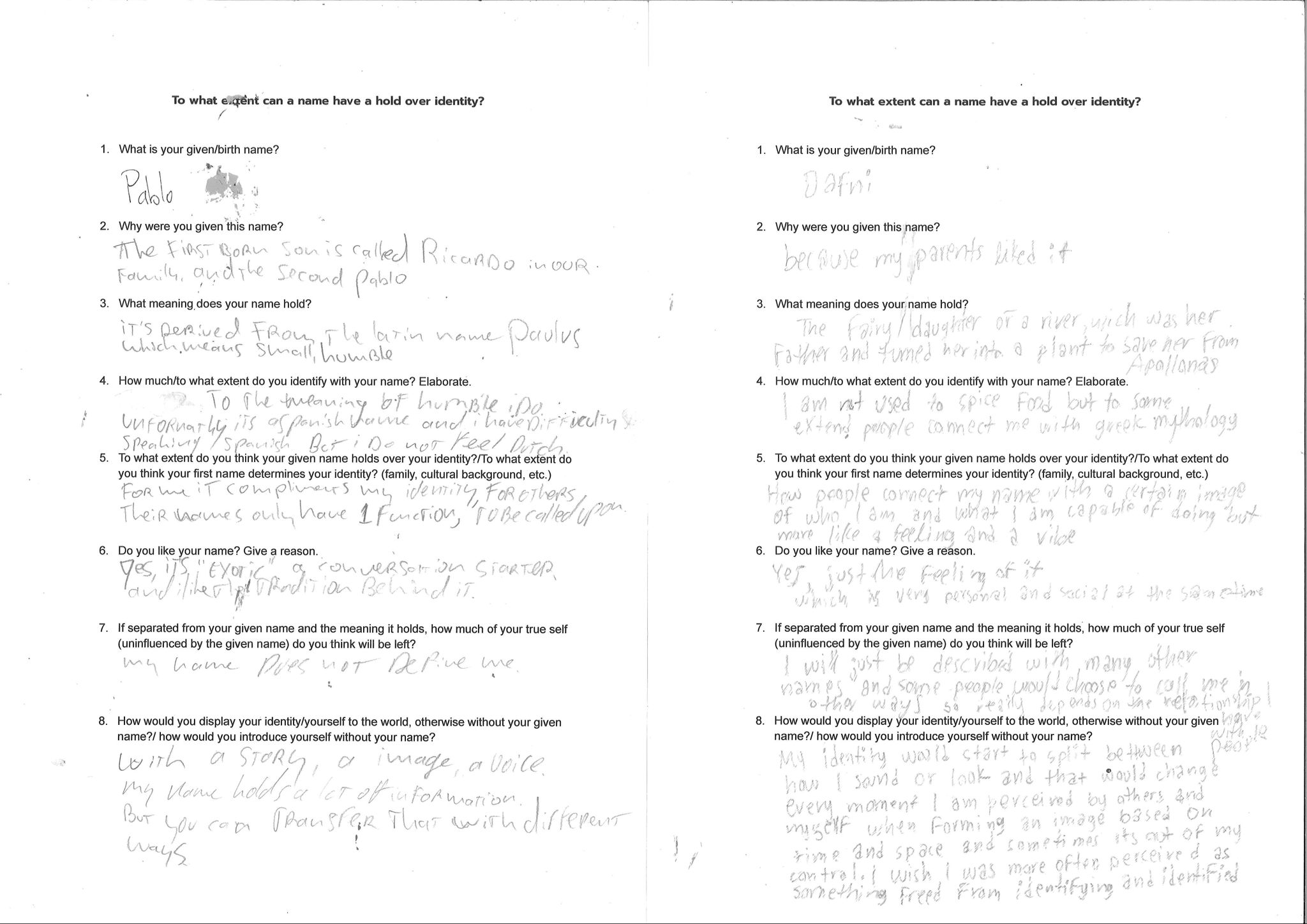
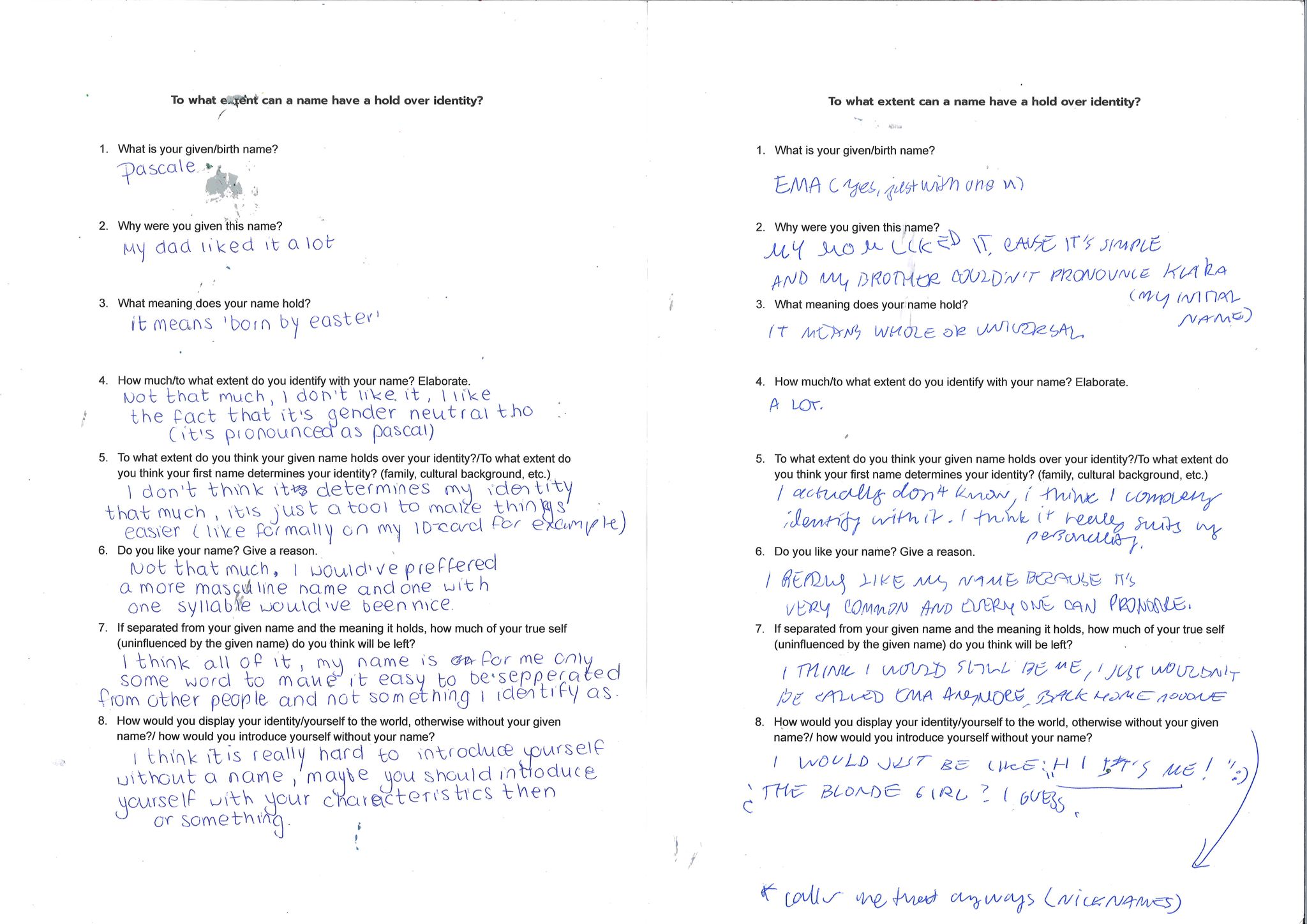
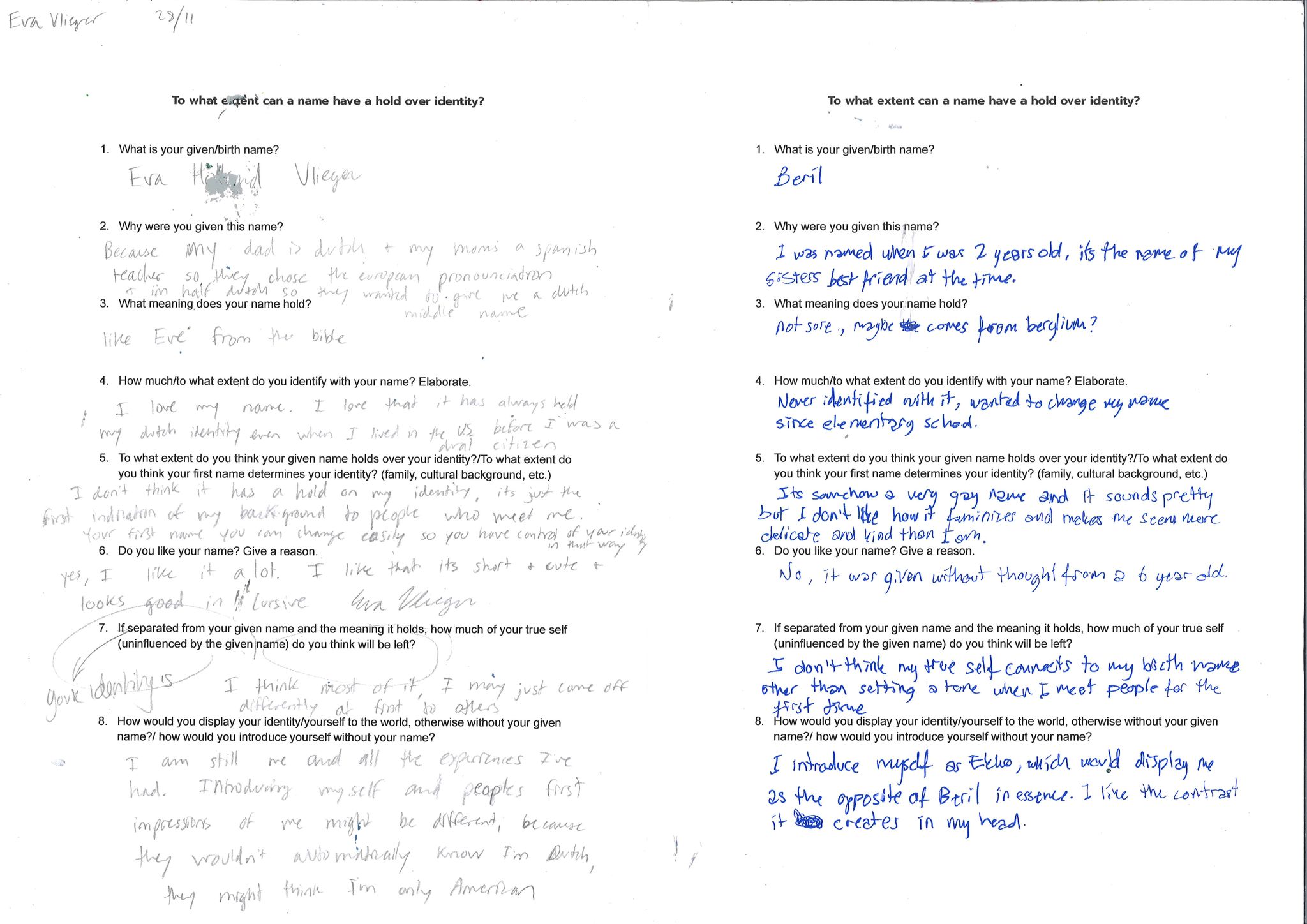
We chose to focus on queer publications as it picked our interest the most.
During our research in, we found a book store which specilizes in publications about postcolonialism, gender & LHBTQIA+ and organize events (@savannahbay follow them on IG).
On their website they talk about the "safe space" this bookstore creates, which is super interesting and suggests that not all bookstores are a safe space for f.e queer people.
With that information we thought of making a book mark with a link on it that goes to a page where we share our research and some book tips and hand them out to bookstores in Rotterdam.
However after feedback we realized it would not work for the project so we kept exploring.
"Another way bodies can become nameless is when an individual’s name is taken away as an expression of power and control. As Finch (2008: 712) notes, anthropological litera- ture on slavery points to the control of the powerful over the naming of the powerless. Likewise, in institutions like prisons and concentration camps, a strategy for dehumanizing and de-individualizing inmates is to take away their name and replace it with a number.
Our names are both constituted by and help to constitute our sexed and gendered selves, our racialized and ethnic identities and other identifications that make us both a unique individual and a culturally embedded and socially administered citizen." https://www.jstor.org/stable/26555809
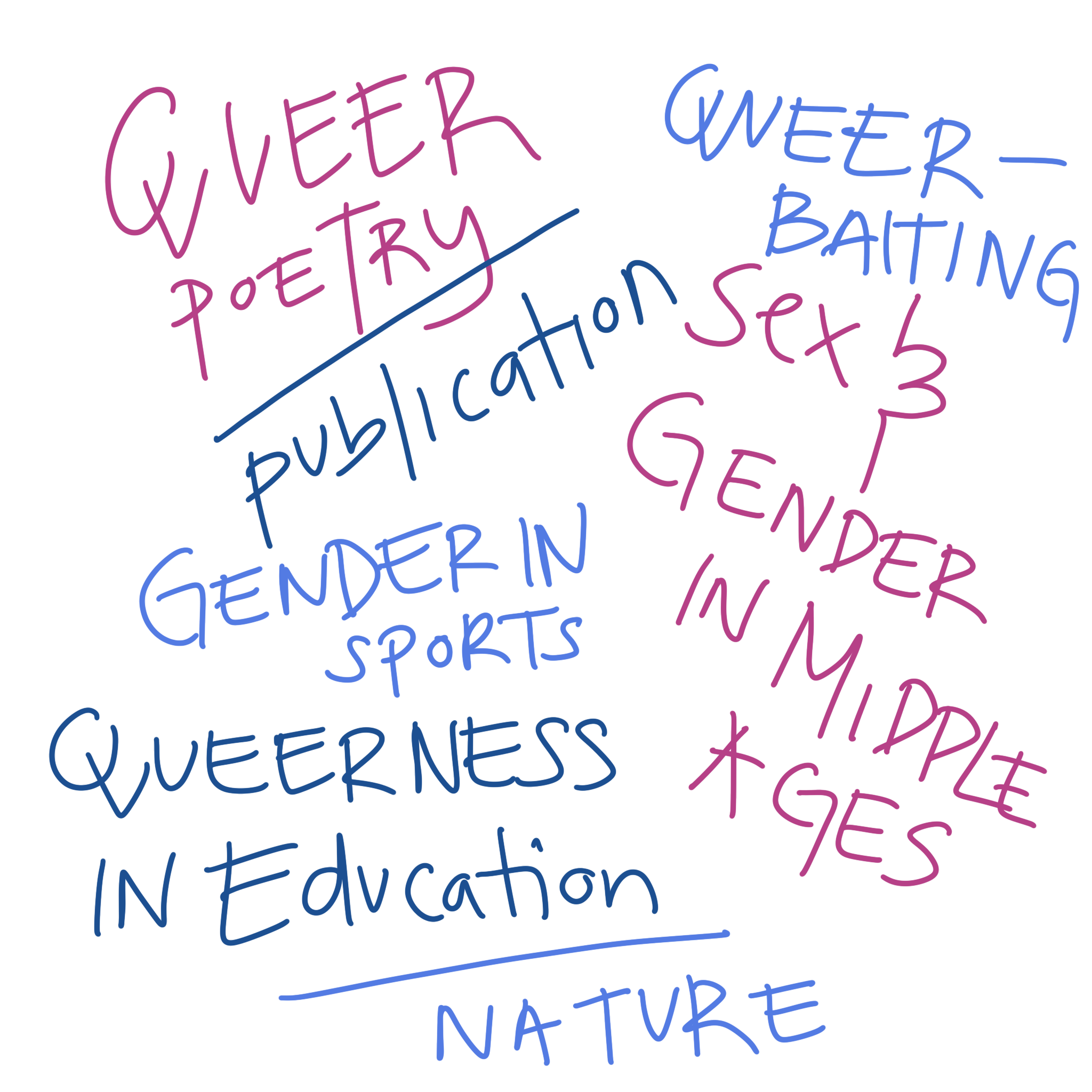
During our brainstorming, we came up with a few topics circling around mostly queerness and gender and their roles in spaces.
We talked about exploring subjects such as queer publications/poetry, the lack of queer representation, what literature we were brought up (queer/non queer literature) and what effect that had on us and as well cis-hetero publishers/writers who take over queer stories.
All of us participated in the discussion and exploration of our concept, are going to bring tools for the workshop and we made masks ourselves
Jantien and Charlotte made the final decisions for the final concept.
Daniel and Liza worked on putting to gether information such on HOTGLUE.
We struggled with choosing and making sense of our research so we felt stuck for a while.
However we proceeded with chainlinks on individuals and identity, and then came up with a questionaire to explore the concept of names and identities, as well usernames and their role in webspace.